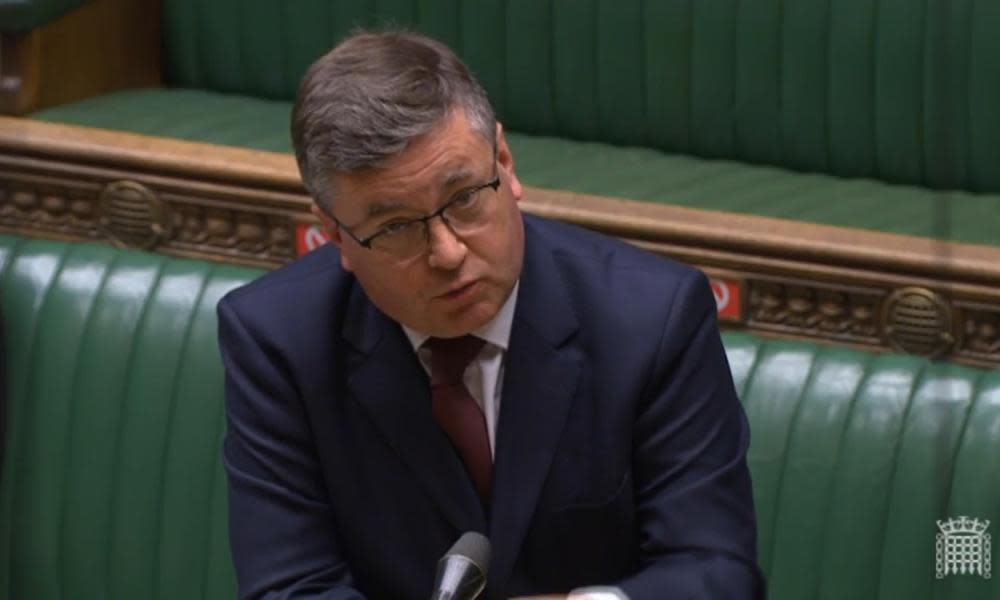MoJ favours 'Nightingale' crown courts to tackle huge backlog of cases

Plans for non-jury trials to speed up efforts to tackle a backlog of more than 40,000 crown court cases appear to have been sidelined as the Ministry of Justice opts instead for extended opening hours, emergency “Nightingale” courts and, possibly, smaller juries.
Announcing a courts “recovery” plan on Wednesday to cope with the backlog, exacerbated by the coronavirus lockdown, the justice secretary, Robert Buckland, said: “I have already identified 10 additional sites for so-called Nightingale courts, to allow for better social distancing; we are looking at whether courts will need to stay open for longer to increase the number of cases that can be heard safely on any given day.”
He added: “The standard of video technology continues to improve, with new tech being rolled out across all courts from this week; and I am exploring means of getting jury trials moving at pace once more.”
There has been concerted opposition from most of the legal profession to the idea of non-jury trials, whether it involved a judge sitting alone or with two magistrates to return verdicts on less serious offences.
Earlier this week, the MoJ announced £142m spending on court maintenance and technology to enable more cases to be heard remotely.
Related: Coronavirus has stopped trials by jury, and that's not necessarily a bad thing | Geoffrey Robertson
Some crown court trials have already restarted and more are due to begin hearings in the coming weeks. The reduction in social distancing from 2 metres to 1 metre will speed up the process. In order to ensure trials were conducted safely, some cases were spread across two or three courts with media and lawyers linked by video screens.
The location of the 10 emergency, Nightingale courts has not yet been revealed. Extended court hours, which have been tried in various pilot projects aimed at creating more flexible working practices, are unlikely to be popular with lawyers who often prepare the next day’s cases late into the evening.
Smaller juries of seven people, rather than 12, were used in crown court trials during the second world war.
Responding to the MoJ announcement, Simon Davis, the president of the Law Society, which represents solicitors in England and Wales, said: “It is positive to see HMCTS [Her Majesty’s Courts and Tribunals Service] publish their recovery plan to alert legal professionals and court users what to expect from the court system going forwards.
“However, introducing extended working hours for already beleaguered judges, practitioners and court staff needs to be treated with utmost caution – as they pose risks for all involved, including of course the victims of crime and the parties in sensitive family cases.”
One problem that is becoming more urgent is the difficulty solicitors are having in gaining access to their clients in custody. Kerry Hudson, the president of the London Criminal Courts Solicitors’ Association, tweeted on Wednesday: “Next legal video slot in[Wormwood] Scrubs [Prison] is 01.10.20. Next slot at Thameside 10.08.20. This is an access to justice issue caused by underfunding, exacerbated by Covid. How can we clear the courts backlog in these conditions?”
The organisation Fair Trials has published a highly critical report based on the experience of defence lawyers who warned they had not had access in private to defendants to represent them effectively during the pandemic.
The MoJ appears to have gone cold on non-jury trials despite Buckland telling MPs on the justice select committee last week that emergency legislation would be prepared to allow for a judge to sit alongside two magistrates without jurors.
The shadow justice secretary, David Lammy, has also opposed non-jury trials, saying: “Robert Buckland is wrong to consider proposals to limit jury trials for certain offences. The right to trial by your fellow citizens is fundamental to our democracy. It would be wrong of the government to abandon this valuable tradition for short-term benefit.”

 Yahoo News
Yahoo News 